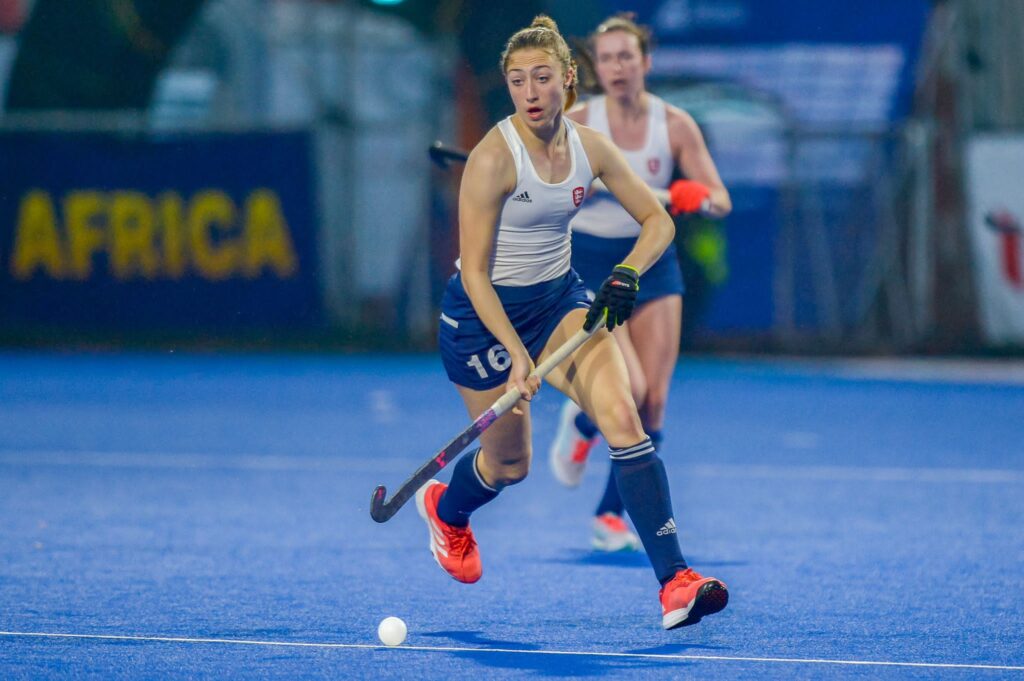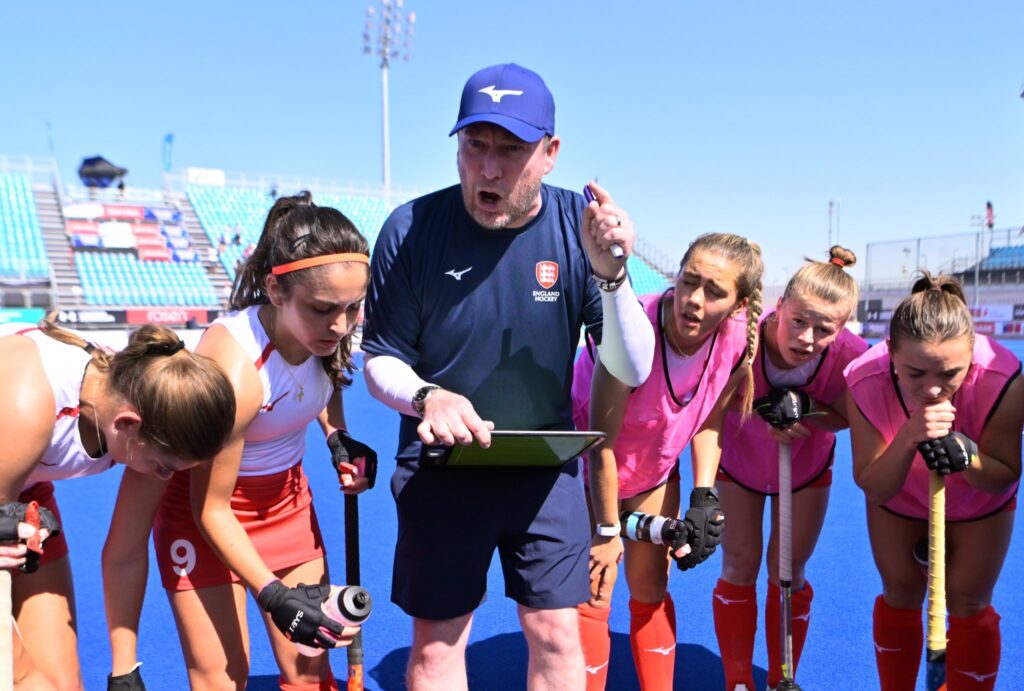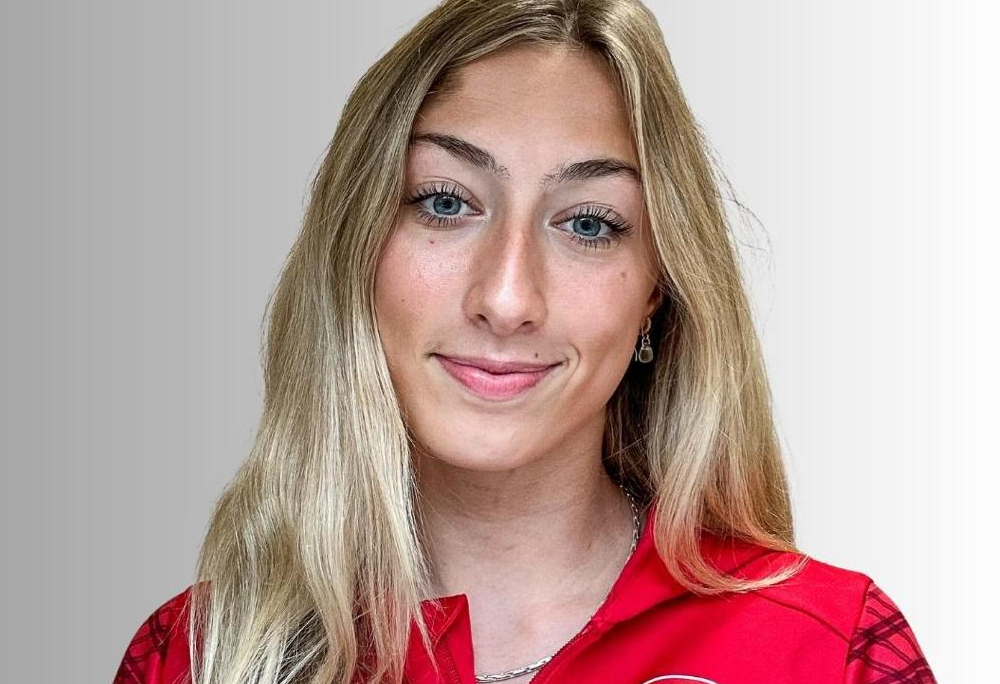TILLY BUTERWORTH is playing at the Junior Hockey World Cup with England women. Here, she writes an honest assessment of the journey back from injury
Within the sporting world there is much focus on the highs and lows. As hockey players we experience the celebrations; like coming back from 3-0 down to win, as well as the dramas, such as losing to an opposition who scored from a penalty corner just before the final whistle. These emotions can be unlike any others we will experience in life, and we always wish to relive and remember them.
I have had so many positive experiences within hockey and, until eight months ago, during a Premier Division game against Birmingham University, I had never really understood some of the more challenging aspects of sport and being an athlete.
The moment I tore my hamstring in the second quarter of the game changed this somewhat naive outlook instantly.
Hitting the stinging surface of the pitch and being unable to get back up was the first sign to me that I would have to address the idea of an injury in my sporting career.
I was an emotional wreck as I hobbled off the pitch, cursing and shaming myself because my body had let me down. As athletes, we work every day to look after our bodies so that we can perform and function the way we want to.
Before, I had always thought I could keep pushing through training sessions, camps, fitness tests and matches, but sometimes, the hardest thing to do as an athlete is to just stop.

It is so important to listen to our bodies and a tendency often seen in the sporting world, especially in younger and developing athletes, is not understanding the importance of taking mindful rest.
The drive to be the best and to never stop often outweighs our understanding of the need to recover and be honest with how we feel, and self-care should never be seen as a negative. I was guilty of ignoring my pain before my injury, and I wish I had reflected on this before I stepped onto the pitch that day.
Enduring a major injury is as distressing mentally as it is physically, and as an athlete it is important to seek support when you need it. In the days after I tore my hamstring, when the truth began to sink in that I would be out of hockey for not just weeks but months, I found myself panicking that my career was over in some way. I worried that I would never be the same player, that I would lose my attributes and regress from the level I was at before.
These emotions grew stronger and became all-encompassing; I was still lacking a proper diagnosis and recovery time-scale five months down the line. I believe this factor in the injury pathway is often misunderstood because the journey through any kind of setback in sport is often portrayed as being steady and simple; follow a step-by-step process and you will achieve the desired outcome.
However, the best way to describe my experience was turbulent. It is so important for athletes to comprehend that comparing yourself to others, and their personal stages through sport, is unrealistic and can add to further stress your body. We all have our own unique sporting careers, and focusing on your journey as you come back from injury is the best thing you can do.
All in all, it was a really tough experience, but I learned valuable lessons from this process. The strength and passion of an athlete often make the prospect of showing vulnerability and asking for help seem daunting. However, we must understand that within the sporting community, there is support for us, and once I decided to unload all the built-up anger, self-consciousness and anxiety that my injury gave me, my path back to playing seemed to become steadier.

As I reflect on the last eight months and the different steps and procedures I undertook to get back on the pitch, strangely I can see positive elements within that time. One of the best ways of coping was to immerse myself in other areas of the hockey world, and this involved coaching at my club, Repton HC, and travelling with my teams to National Finals to show support. It is key to always remember that positives can be found in challenging situations.
Injuries should never be considered easy barriers to overcome, no matter the level of severity. It is important to share how it makes you feel, because it is hard to see the positives when you are caught in such a negative and dampening mindset.
Athletes should also know that assistance and advice is always there, you just have to reach out. Personally, I found I gained all my perspective on how I felt and what I struggled with, after my time injured, when I had proper space to reflect and share my thoughts.
After so many physio and rehabilitation sessions, and tireless support from family and friends, I finally saw that all my hard work and patience had paid off; I was back in the game again.
Do you have a feature or story idea? Send your news. Get in touch!




